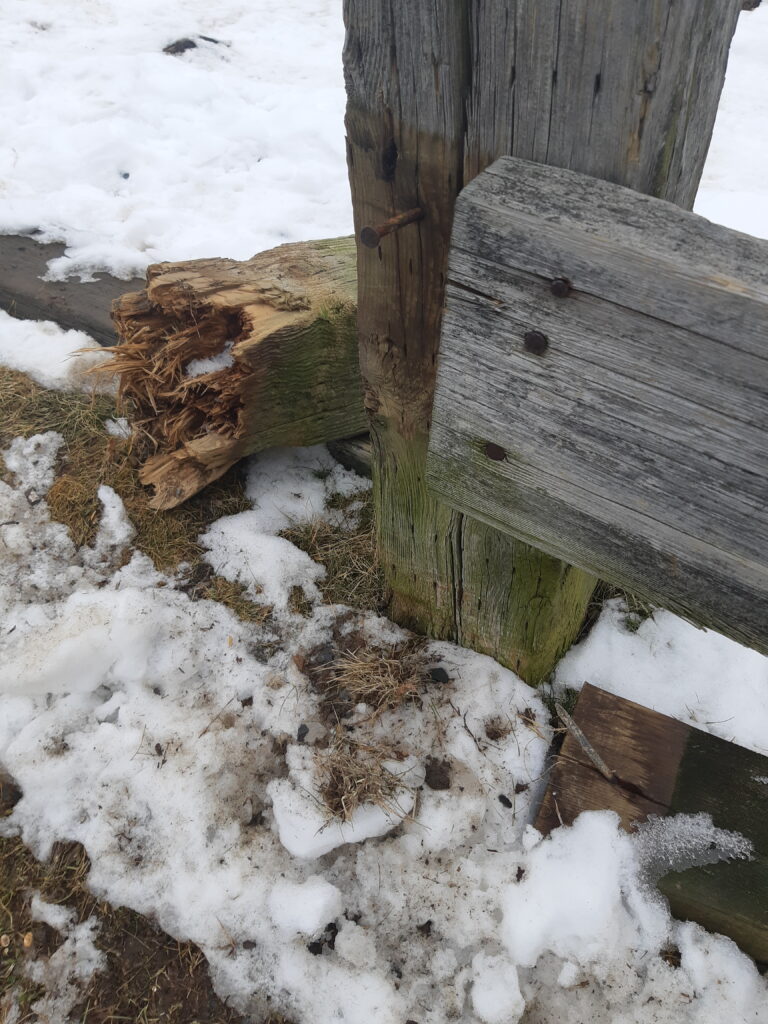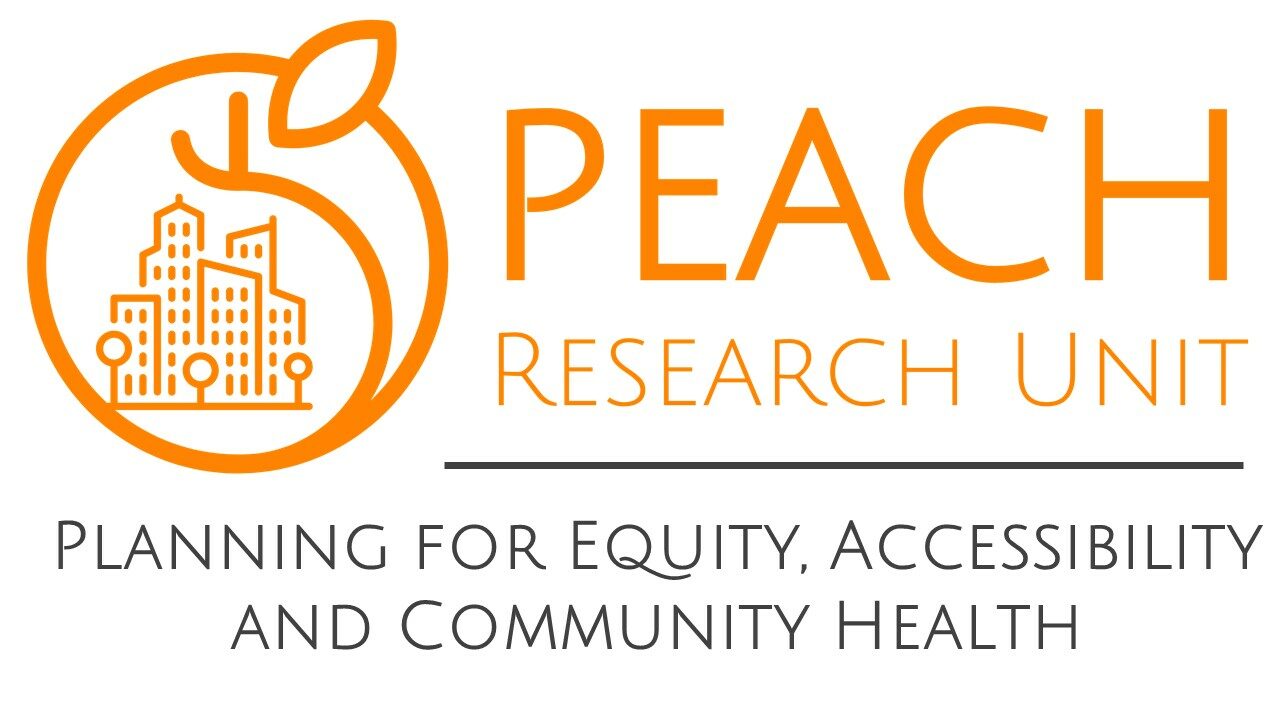On a weekend in late January, myself and two other PEACH team members attended a workshop to become trainers for Women’s Safety Audits (WSA). These safety audits were created through the UN Women’s Global Initiative, “Safe Cities and Safe Public Spaces”, with the goal being to combat violence against women and girls around the world.
WSAs are performed by women to assess how their needs and interests are or are not being met by the built environment. The results of a completed audit can help to guide the design and planning of public spaces, while the process of completing an audit can empower and educate women (and others) about safety and social barriers in public space.

Image of a railing in need of repair along a walkway in a public park. Exposed nails and unstable wooden beams pose a safety risk to pedestrians, particularly small children. This was identified by women participating in a trial Women’s Safety Audit during the training.
On the first day of the workshop, we placed green, yellow, and red stickers on a map to indicate where we feel safe and welcome (green), unwelcome (yellow), and unsafe (red) on the peninsula of HRM. This activity sparked conversations between participants about why places felt safe or unsafe. Sharing our experiences of these places was eye-opening, especially when hearing first-hand how age, race, and other social factors contribute to the varied experiences of women in urban spaces. WSAs recognize that women have unique expertise on public spaces and safety from their daily lives, and these experiences inform the audit process. My biggest takeaway from the weekend was, if a public space doesn’t feel safe for everyone, it isn’t safe for everyone.
Historically, many decisions in urban planning have failed to consider the needs and interests of the diverse users of public space. Thanks to this workshop, I am one of many women who have learned about the value of sharing our daily lived experiences to inform and shape our communities. Going forward, I hope to build off this momentum and educate future colleagues and peers about the value of WSAs and the contributions of women’s daily lived experiences.
